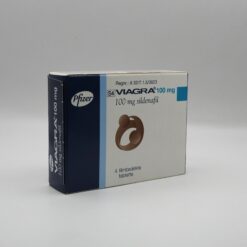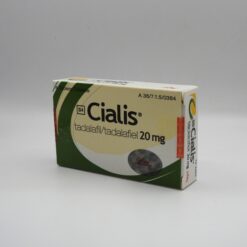-
×
 Bisoprolol Hexal(30)
1 × $36.53
Bisoprolol Hexal(30)
1 × $36.53

Levitra (20mg tablet x 4)
$177.06
Levitra is a medication that contains the active ingredient vardenafil, which belongs to the class of drugs known as phosphodiesterase type 5 inhibitors. It is commonly used to treat erectile dysfunction (ED) in men. The recommended dosage of Levitra is 20mg, taken orally once per day, approximately one hour before sexual activity. The medication should be taken with a full glass of water, and it can be taken with or without food. Possible side effects of Levitra include headache, facial flushing, indigestion, and nasal congestion. It should not be used by individuals who are allergic to vardenafil or other phosphodiesterase type 5 inhibitors, have severe liver or kidney disease, have a history of certain eye conditions, or are taking nitrates for chest pain.



